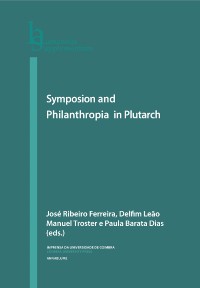Please use this identifier to cite or link to this item:
https://hdl.handle.net/10316.2/32035| Title: | El Banquete de los Siete Sabios de Plutarco y los temas de sabiduría práctica | Authors: | Vela Tejada, José | Issue Date: | 2009 | Publisher: | Imprensa da Universidade de Coimbra Centro de Estudos Clássicos e Humanísticos |
Journal: | http://hdl.handle.net/10316.2/2353 | Abstract: | The aim of this article is to study why Plutarch makes use of the literary tradition of symposia to place the legend of the Seven Sages. Instead of that we should expect, given the hold of Plato over his work, Plutarch relegates philosophical argument to a type of dialogue focusing on aspects of practical wisdom. In our opinion, the explanation of this apparent contrast must be analyzed from a double and complementary perspective: first, by considering the protagonists of that fictitious meeting, the Seven Wise Men, the paradigm of archaic wisdom, which combined both practical and intellectual learning; second, as a result, the suitability of form and content to a symposiac framework deeply rooted in the literary tradition, just as it is attested by the early patterns of the fourth century BC: Xenophon and Plato. | URI: | https://hdl.handle.net/10316.2/32035 | ISBN: | 978-989-26-0908-9 (PDF) | DOI: | 10.14195/978-989-8281-17-3_42 | Rights: | open access |
| Appears in Collections: | Symposion and philanthropia in Plutarch |
Files in This Item:
| File | Description | Size | Format | |
|---|---|---|---|---|
| 42-_symposion_and_philanthropia.pdf | 232.59 kB | Adobe PDF |  |
Items in DSpace are protected by copyright, with all rights reserved, unless otherwise indicated.
